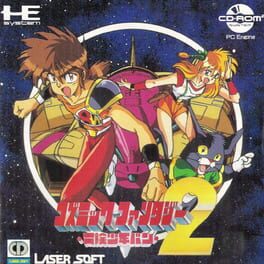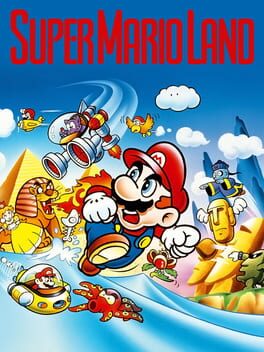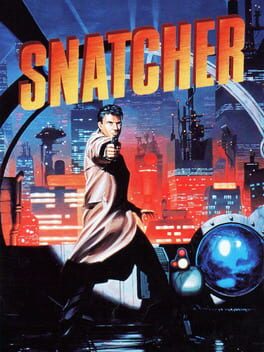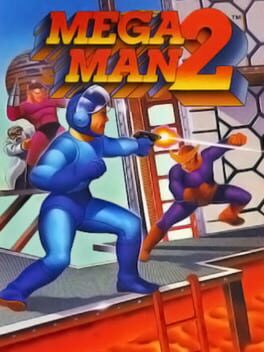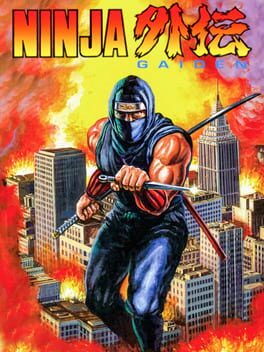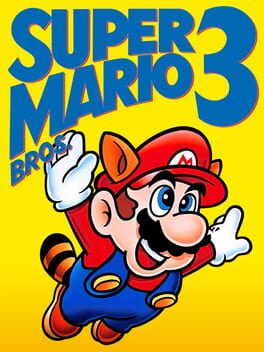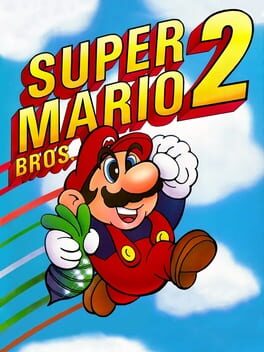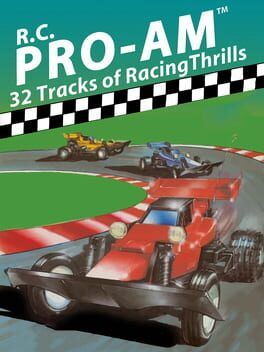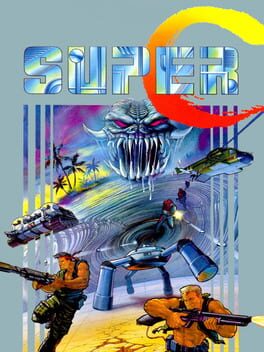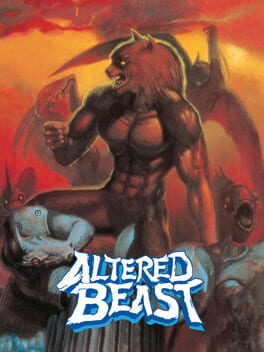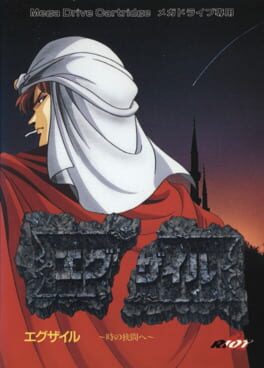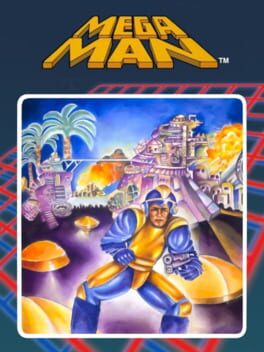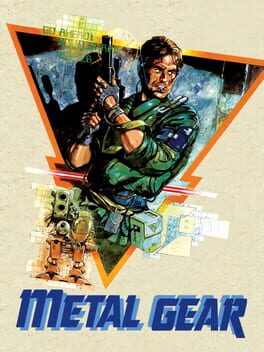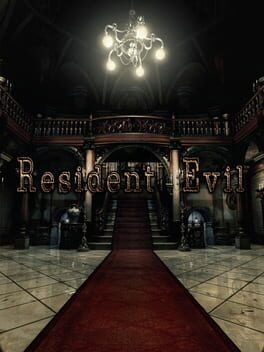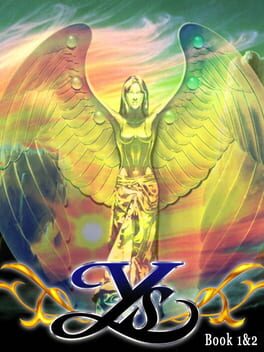TheMaxine
1991
(Used a romhack that reverts the difficulty back to how it was in the Japanese release)
Good news, I've outraced the other guy who reviewed this and managed to complete the game before they did! Moreover, I'm led to believe I may be the only one on Backloggd who has reached the credits, seeing as I cannot possibly imagine anyone else being assed enough to complete it unless they have OCD like I do. The bad news? Wasn't worth it!
I've played a decent spectrum of RPG's at this point. Paper Mario, the casual beginner's RPG. Final Fantasy 4, the moderately challenging but still relatively lax RPG. EarthBound, the sometimes-easy sometimes-tough RPG, depends on the current difficulty spike. Final Fantasy Legend II, the brutally punishing RPG. Cosmic Fantasy 2... oh my god, Cosmic Fantasy 2.
It took about 3-4 hours of gameplay to determine that this was the most dull fucking RPG I have ever played in my life, and it never got better. Any lessons that Dragon Quest 3 & 4 should've taught and influenced this entry were taken for granted. No amount of neat little anime cutscenes or the short 12-hour length could've hidden the repetitive and unchanging combat system's flaws.
Think of it this way. Dragon Quest 1 was a pretty mediocre RPG, and that was mainly because it was a solo venture, with no party members to speak of. The limitations allowed for little strategy beyond mashing the attack button and the occasional heal. Later Dragon Quests rectified this problem by providing multiple classes worth of party members to choose from, which allowed for a number of interesting customizable builds that affected how you play the game.
So how the fuck is it that Cosmic Fantasy 2 allows a total of 4 people in your party, and yet winds up feeling about as monotonous as Dragon Quest 1 was? The answer is: The magic blows. Your traditional elemental spells are here, but enemies don't have any weaknesses to speak of. Instead, magic always deals a fixed amount of damage no matter which enemy you use it against, and said damage generally tends to be weaker than just mashing the attack button.
Adding on top of the fact that these offensive spells drain your MP like crazy, you're gonna wind up only using the healing ones. And thus, reveals itself the exciting gameplay loop: "Mash the attack button, and heal occasionally." Even then, you're not gonna be healing all that much, because Inns are plentiful, enemies deal baffingly low amounts of damage (like, 1 or 2 points...) and level ups restore all of your HP and MP to full. So really, it's actually just "mash the attack button." And throw in insanely frequent encounter rates as well, while you're at it. I'm not against an easy RPG, but this takes mindless to a next level.
Also, why were there items that cure status effects despite the fact I never got a single status effect throughout the whole game? I'm... not sure if this is a problem with the romhack or this is just how the game works, but it was super weird.
For a game that has “cosmic” in the title, there is barely any of that. Phantasy Star, this ain’t. Every couple hours or so, you MAY get one cutscene that gives you some spaceships traveling the galaxy, but this stuff is so in the background that it makes me question why is it in the game at all, when most of the actual focus takes place on a generic medieval fantasy island with your usual towns and overworld map. You don't get to shoot laser guns or battle aliens until the last 30 minutes of the game. All of the sci-fi shit is so baffingly in the background, that when it DOES happen, you go “oh, right! I completely forgot this game had space stuff in it!” You might as well just call this game Fantasy 2.
The localization is definitely more competent than most of the RPG's of the time. Even Final Fantasy 4 suffered from a pretty bad one. But as is Working Design's standard, not everything is accurate to the source material. For some reason they gave one of the characters this aggressive French accent, and you're looking at the guy's calm and smiling face as he repeteadly belittles you and you can so fucking tell that whatever this was in the Japanese version, was completely thrown out the window here because somebody thought it'd be funny. Yeah, sure, your fart joke was very funny, Working Designs. Top-notch writing.
No, but really, the story here is kinda par for the course for the early 90's. Trying hard to be something special, but heavily underdeveloped to truly stick the landing. Definitely feels like some context is missing here too, I'm pretty sure there's some cameo characters from the first game here, but obviously, since this was the only localized entry, there's no attachment there.
Listen, unless you grew up with it, just don't play this one. I mean it, there's nothing for you here, and plenty of greater RPG's out there for you instead. Do not make my mistake. Do not fuck around and find out.
Good news, I've outraced the other guy who reviewed this and managed to complete the game before they did! Moreover, I'm led to believe I may be the only one on Backloggd who has reached the credits, seeing as I cannot possibly imagine anyone else being assed enough to complete it unless they have OCD like I do. The bad news? Wasn't worth it!
I've played a decent spectrum of RPG's at this point. Paper Mario, the casual beginner's RPG. Final Fantasy 4, the moderately challenging but still relatively lax RPG. EarthBound, the sometimes-easy sometimes-tough RPG, depends on the current difficulty spike. Final Fantasy Legend II, the brutally punishing RPG. Cosmic Fantasy 2... oh my god, Cosmic Fantasy 2.
It took about 3-4 hours of gameplay to determine that this was the most dull fucking RPG I have ever played in my life, and it never got better. Any lessons that Dragon Quest 3 & 4 should've taught and influenced this entry were taken for granted. No amount of neat little anime cutscenes or the short 12-hour length could've hidden the repetitive and unchanging combat system's flaws.
Think of it this way. Dragon Quest 1 was a pretty mediocre RPG, and that was mainly because it was a solo venture, with no party members to speak of. The limitations allowed for little strategy beyond mashing the attack button and the occasional heal. Later Dragon Quests rectified this problem by providing multiple classes worth of party members to choose from, which allowed for a number of interesting customizable builds that affected how you play the game.
So how the fuck is it that Cosmic Fantasy 2 allows a total of 4 people in your party, and yet winds up feeling about as monotonous as Dragon Quest 1 was? The answer is: The magic blows. Your traditional elemental spells are here, but enemies don't have any weaknesses to speak of. Instead, magic always deals a fixed amount of damage no matter which enemy you use it against, and said damage generally tends to be weaker than just mashing the attack button.
Adding on top of the fact that these offensive spells drain your MP like crazy, you're gonna wind up only using the healing ones. And thus, reveals itself the exciting gameplay loop: "Mash the attack button, and heal occasionally." Even then, you're not gonna be healing all that much, because Inns are plentiful, enemies deal baffingly low amounts of damage (like, 1 or 2 points...) and level ups restore all of your HP and MP to full. So really, it's actually just "mash the attack button." And throw in insanely frequent encounter rates as well, while you're at it. I'm not against an easy RPG, but this takes mindless to a next level.
Also, why were there items that cure status effects despite the fact I never got a single status effect throughout the whole game? I'm... not sure if this is a problem with the romhack or this is just how the game works, but it was super weird.
For a game that has “cosmic” in the title, there is barely any of that. Phantasy Star, this ain’t. Every couple hours or so, you MAY get one cutscene that gives you some spaceships traveling the galaxy, but this stuff is so in the background that it makes me question why is it in the game at all, when most of the actual focus takes place on a generic medieval fantasy island with your usual towns and overworld map. You don't get to shoot laser guns or battle aliens until the last 30 minutes of the game. All of the sci-fi shit is so baffingly in the background, that when it DOES happen, you go “oh, right! I completely forgot this game had space stuff in it!” You might as well just call this game Fantasy 2.
The localization is definitely more competent than most of the RPG's of the time. Even Final Fantasy 4 suffered from a pretty bad one. But as is Working Design's standard, not everything is accurate to the source material. For some reason they gave one of the characters this aggressive French accent, and you're looking at the guy's calm and smiling face as he repeteadly belittles you and you can so fucking tell that whatever this was in the Japanese version, was completely thrown out the window here because somebody thought it'd be funny. Yeah, sure, your fart joke was very funny, Working Designs. Top-notch writing.
No, but really, the story here is kinda par for the course for the early 90's. Trying hard to be something special, but heavily underdeveloped to truly stick the landing. Definitely feels like some context is missing here too, I'm pretty sure there's some cameo characters from the first game here, but obviously, since this was the only localized entry, there's no attachment there.
Listen, unless you grew up with it, just don't play this one. I mean it, there's nothing for you here, and plenty of greater RPG's out there for you instead. Do not make my mistake. Do not fuck around and find out.
1989
It seems like the opinion on this game here's pretty divided. Either you'll like it or hate it. Me, I fall on the spectrum of really really liking this one. Partially due to nostalgic attachment, but also because I think there's a pretty solidly designed game here, underneath one caveat. The controls. Coming from Mario 3, or even Mario 1, Mario's physics feel a lot more basic. There's no friction, no momentum, it kinda feels like one of those amateur Mario fangames that don't even bother trying to get the feel of the physics right.
Despite that, the controls DO work, and the level design works alongside them. And that very level design is what saves this game. The collection of levels here feels just as fun to master as any other Mario game, encouraging exploration and the discovery of secrets that shower you with coins and 1-ups. As you get better at replaying the game, levels get a lot faster to run through, incorporating that speedrunning aspect that Mario 1 had. The variety of levels is strong, constantly taking you to different locales, and occasionally throwing in a little shoot'em up level here and there. The game is short and sweet, a full playthrough taking a little over 20 minutes to complete. And lastly, it goes without saying that the music is catchy as hell.
So, there's a lot going for it. but your expectations of how a Mario game usually feels might really fuck this one up for you. There are definite quirks, but I feel it's possible to quickly master them. To me, Mario Land's a tiny little gem among the Gameboy library, and I feel everybody should give it a shot at least. It's certainly no polished masterpiece, and yet, somehow, it clicked. With an open mind, maybe it'll click for you.
Despite that, the controls DO work, and the level design works alongside them. And that very level design is what saves this game. The collection of levels here feels just as fun to master as any other Mario game, encouraging exploration and the discovery of secrets that shower you with coins and 1-ups. As you get better at replaying the game, levels get a lot faster to run through, incorporating that speedrunning aspect that Mario 1 had. The variety of levels is strong, constantly taking you to different locales, and occasionally throwing in a little shoot'em up level here and there. The game is short and sweet, a full playthrough taking a little over 20 minutes to complete. And lastly, it goes without saying that the music is catchy as hell.
So, there's a lot going for it. but your expectations of how a Mario game usually feels might really fuck this one up for you. There are definite quirks, but I feel it's possible to quickly master them. To me, Mario Land's a tiny little gem among the Gameboy library, and I feel everybody should give it a shot at least. It's certainly no polished masterpiece, and yet, somehow, it clicked. With an open mind, maybe it'll click for you.
1992
Snatcher wears its Blade Runner influences for everybody to see. As blatant as it is though, the game does feel like it's doing its own thing. It's less "we're ripping off blade runner" and more "this is what we would do if we had the blade runner franchise." It feels more earnest in that way.
In terms of the overall storytelling quality though, I feel like Snatcher is more entertaining as a series of individual moments than it is as a cohesive overarching narrative, because I've played this game at least three times now, and I still can't remember what the story is about. I do however, remember the characters, the little robot, the actiony sequences, the setpieces... The computer device in your HQ had a whole bunch of shit that had that sort of trademark Kojima "jesus christ he put way too much thought into this" thing, and it made for some entertaining worldbuilding. All of these things pull enough weight to keep you going to see what'll happen next, so as a story, I guess I'd rate it "good enough!"
Music's pretty good too. The opening theme is a particular highlight, by far the best song in the game. The rest of the songs tend to stick to 16-bit Genesis kinda sounds, though I wish there was more of them across the game. The visuals seen across are some of the best spritework you'll find of this era. Richly detailed cities lit in the night, busy crowds during Christmas season, and decrepit abandoned relics of the past, all of which emitted some feelings of nostalgia for places I've been to, similar to these.
As a game though, it's not fun. You have your traditional adventure game interface of that time, where you can look and examine various things, but Snatcher gets really annoying about it by providing you with random arbitrary requirements regarding what counts as "progress." Get ready to examine the same objects 5 or 6 different times constantly throughout the game, until it finally decides that you were thorough enough to unlock the next area. It'll cause you to get constantly stuck, and makes for some pretty padded pacing.
Besides that, you have a couple basic gallery shooter segments for when you have to engage in combat, but they're nothing to write home about. It's just something to do, but the lack of depth makes it arguably pointless.
Going back to the story, there is one major point of criticism I have against it. Your MC, Gillian. Gillian's a detective. I really like detective characters. Cool guys that get shit done. And Gillian does do some cool shit over time. It makes me really want to like him too. If it weren't for the fact that he's a major fuckin' horndog.
This is a complicated thing to discuss, as there are right ways to write a comically horny character, and there are very wrong ways that make things actively creepier than funnier. Gillian is a creepy horny. I think that's in part because he's the only one in the game that behaves that way, so he sticks out. It doesn't matter who it is, could be the 18-year old girl grieving her father's passing, for all he cares. As long as they're even remotely feminine in appearance, Gillian starts going awooga all over'em.
The contrast becomes explicitly obvious when you compare the way the game treats male characters versus how it treats girls as things to undress with your eyes. Not to mention, how it uses the existence of a trans person all for the sake of a shitty "Oh NO, I've been flirting with a GUY?!" joke. The treatment of sexuality here is off-puttingly one-sided, entirely based around making women uncomfortable by telling them to be submissive for the guys, and it turns the otherwise cool detective character into an incredibly depressing, and rarely endearing loser.
One may argue, that these flirting options are optional, and, as a result, are a roleplaying element. Absolutely not. Gillian will do stuff like this with or without your heads-up. There's one point in the game where you're searching the streets for an informant, and Gillian just happens to stumble upon some random girl on the street and starts acting up all on his own. It's not a roleplaying element, it's just part of his personality.
Not like this is a roleplaying game anyway, you don't make choices that affect the course of the game's story, all you're in charge of is your womanizer levels. I know I've been prattling on about this for like half the review, it's just unsettling that within a game that has so many neat moments, also lies this pointless bullshit. I mean, it could've had the potential to be an ironic Johnny Bravo, but it instead wound up being that creepy drunken guy in the bar that follows you down the alleyway. And it makes the game kinda embarrassing to recommend to anyone.
And I haven't even gotten to reviewing Policenauts yet, 'cause jesus christ.
In terms of the overall storytelling quality though, I feel like Snatcher is more entertaining as a series of individual moments than it is as a cohesive overarching narrative, because I've played this game at least three times now, and I still can't remember what the story is about. I do however, remember the characters, the little robot, the actiony sequences, the setpieces... The computer device in your HQ had a whole bunch of shit that had that sort of trademark Kojima "jesus christ he put way too much thought into this" thing, and it made for some entertaining worldbuilding. All of these things pull enough weight to keep you going to see what'll happen next, so as a story, I guess I'd rate it "good enough!"
Music's pretty good too. The opening theme is a particular highlight, by far the best song in the game. The rest of the songs tend to stick to 16-bit Genesis kinda sounds, though I wish there was more of them across the game. The visuals seen across are some of the best spritework you'll find of this era. Richly detailed cities lit in the night, busy crowds during Christmas season, and decrepit abandoned relics of the past, all of which emitted some feelings of nostalgia for places I've been to, similar to these.
As a game though, it's not fun. You have your traditional adventure game interface of that time, where you can look and examine various things, but Snatcher gets really annoying about it by providing you with random arbitrary requirements regarding what counts as "progress." Get ready to examine the same objects 5 or 6 different times constantly throughout the game, until it finally decides that you were thorough enough to unlock the next area. It'll cause you to get constantly stuck, and makes for some pretty padded pacing.
Besides that, you have a couple basic gallery shooter segments for when you have to engage in combat, but they're nothing to write home about. It's just something to do, but the lack of depth makes it arguably pointless.
Going back to the story, there is one major point of criticism I have against it. Your MC, Gillian. Gillian's a detective. I really like detective characters. Cool guys that get shit done. And Gillian does do some cool shit over time. It makes me really want to like him too. If it weren't for the fact that he's a major fuckin' horndog.
This is a complicated thing to discuss, as there are right ways to write a comically horny character, and there are very wrong ways that make things actively creepier than funnier. Gillian is a creepy horny. I think that's in part because he's the only one in the game that behaves that way, so he sticks out. It doesn't matter who it is, could be the 18-year old girl grieving her father's passing, for all he cares. As long as they're even remotely feminine in appearance, Gillian starts going awooga all over'em.
The contrast becomes explicitly obvious when you compare the way the game treats male characters versus how it treats girls as things to undress with your eyes. Not to mention, how it uses the existence of a trans person all for the sake of a shitty "Oh NO, I've been flirting with a GUY?!" joke. The treatment of sexuality here is off-puttingly one-sided, entirely based around making women uncomfortable by telling them to be submissive for the guys, and it turns the otherwise cool detective character into an incredibly depressing, and rarely endearing loser.
One may argue, that these flirting options are optional, and, as a result, are a roleplaying element. Absolutely not. Gillian will do stuff like this with or without your heads-up. There's one point in the game where you're searching the streets for an informant, and Gillian just happens to stumble upon some random girl on the street and starts acting up all on his own. It's not a roleplaying element, it's just part of his personality.
Not like this is a roleplaying game anyway, you don't make choices that affect the course of the game's story, all you're in charge of is your womanizer levels. I know I've been prattling on about this for like half the review, it's just unsettling that within a game that has so many neat moments, also lies this pointless bullshit. I mean, it could've had the potential to be an ironic Johnny Bravo, but it instead wound up being that creepy drunken guy in the bar that follows you down the alleyway. And it makes the game kinda embarrassing to recommend to anyone.
And I haven't even gotten to reviewing Policenauts yet, 'cause jesus christ.
1989
For some reason, Mega Man 2 is still the game I think about the most when I think of this series, and that's probably the case with a lot of people. It was one of the most popular entries in the whole series, and spawned a decent amount of memes back in the 2000's. Its soundtrack greatly contributed to its popularity too, and not for no reason, it is one of NES's best.
It's the peak of the franchise, the peak of the NES Mega Man hexalogy, but in the modern age, this worries me. Because it's likely that a newcomer will hear a lot about this game, and decide to make this their introduction to the Mega Man series, which personally, I would advise against, as much as I like it myself.
In the very least, the big strength of Mega Man 2 over its predecessor is the tightened pacing. There's more levels, but they flow a lot better this time around, taking no time at all to reach the boss at the end. E-tanks make their introduction too, acting as handy emergency items in the case you're almost dead against a boss.
If you're experienced in other Mega Man games, I'd have no trouble recommending Mega Man 2, but what makes me hesitate are certain design choices that are about as questionable as the first game.
Airman, Quickman, and Flashman all suck without their weakness, with attacks that are either too erratic or literally impossible to avoid. There's the Dr. Wily fortress boss which requires every single use of your Crash Bomber weapon to count, otherwise you'll have to game over to reset your ammunition back to full, and that boss also has an attack that's insanely difficult to dodge. The ol' classic "teleporting blocks bridge" in Heatman's stage, or the insta-kill lasers in Quickman's... which granted, are not that hard on subsequent runs, it's those first couple though where you either need to trial 'n error your way through, or have stupid quick reflexes.
It's also important to note as is the case with a good chunk of NES games, that this one is not friendly for photosensitive people. And like, I'm not even photosensitive, but the flashing that this game deploys has me instinctually shielding my eyes from it, that's how bad it is. It happens several times as you enter the final Dr. Wily stages, so be wary.
The US release of Mega Man 2 does have a difficulty option, and picking the default Normal one actually does make a lot of the game pretty easy to get through. Combine that with utilization of boss weaknesses, and bosses can fall in less than 5 seconds. I think this difficulty mode is part of why Mega Man 2 is so enticing for many players, but it does not get rid of the multiple instances of annoying jank I've described examples of above.
And that's the thing. Mega Man 2 is not a bad game at all, I mean, I still play it, I still have fun with it. It's just not a very balanced one, alternating between fun and frustrating design at an inconsistent rate. I feel its popular status sets up wrong expectations of the series's overall quality, as this was still back when Mega Man was figuring its shit out. And I could point to later NES Mega Mans that strike a much, much better balance between challenge and fairness, 4 and 6 come to mind. If you're gonna start anywhere, it's not 2. But, 2 is still a classic, so it's something worth visiting once you have a couple Mega Mans under your belt.
It's the peak of the franchise, the peak of the NES Mega Man hexalogy, but in the modern age, this worries me. Because it's likely that a newcomer will hear a lot about this game, and decide to make this their introduction to the Mega Man series, which personally, I would advise against, as much as I like it myself.
In the very least, the big strength of Mega Man 2 over its predecessor is the tightened pacing. There's more levels, but they flow a lot better this time around, taking no time at all to reach the boss at the end. E-tanks make their introduction too, acting as handy emergency items in the case you're almost dead against a boss.
If you're experienced in other Mega Man games, I'd have no trouble recommending Mega Man 2, but what makes me hesitate are certain design choices that are about as questionable as the first game.
Airman, Quickman, and Flashman all suck without their weakness, with attacks that are either too erratic or literally impossible to avoid. There's the Dr. Wily fortress boss which requires every single use of your Crash Bomber weapon to count, otherwise you'll have to game over to reset your ammunition back to full, and that boss also has an attack that's insanely difficult to dodge. The ol' classic "teleporting blocks bridge" in Heatman's stage, or the insta-kill lasers in Quickman's... which granted, are not that hard on subsequent runs, it's those first couple though where you either need to trial 'n error your way through, or have stupid quick reflexes.
It's also important to note as is the case with a good chunk of NES games, that this one is not friendly for photosensitive people. And like, I'm not even photosensitive, but the flashing that this game deploys has me instinctually shielding my eyes from it, that's how bad it is. It happens several times as you enter the final Dr. Wily stages, so be wary.
The US release of Mega Man 2 does have a difficulty option, and picking the default Normal one actually does make a lot of the game pretty easy to get through. Combine that with utilization of boss weaknesses, and bosses can fall in less than 5 seconds. I think this difficulty mode is part of why Mega Man 2 is so enticing for many players, but it does not get rid of the multiple instances of annoying jank I've described examples of above.
And that's the thing. Mega Man 2 is not a bad game at all, I mean, I still play it, I still have fun with it. It's just not a very balanced one, alternating between fun and frustrating design at an inconsistent rate. I feel its popular status sets up wrong expectations of the series's overall quality, as this was still back when Mega Man was figuring its shit out. And I could point to later NES Mega Mans that strike a much, much better balance between challenge and fairness, 4 and 6 come to mind. If you're gonna start anywhere, it's not 2. But, 2 is still a classic, so it's something worth visiting once you have a couple Mega Mans under your belt.
1988
Just so we're all on the same page, I respect Ninja Gaiden and think everybody should play it at least once. The three stars is not a representation of the game itself, it's a representation of how bad I am at it. This is a game that caters to a specific clientele of hardcore NES players who enjoy a relentless challenge, and, well, as it turns out, it's not a game for me.
There are things to appreciate though. The cinematic approach, first and foremost. What you have here aren't just expository text boxes. These are cutscenes, no ifs or buts about it. Combining shots, angles, visuals, and telling a story throughout. These are your rewards for clearing each stage, and they're very ahead of their time. Not that the story itself is much to talk about, but the presentation is unquestionably professional, with a touch of cheesy.
Of particular note, is that the writer, Hideo Yoshizawa, would go on to direct the Klonoa games, where his drive for combining storytelling with gameplay was made all the more clearer. That one was good as hell.
The soundtrack pulls its weight too, and was one of the main reasons I kept going. There's definitely some stuff here that'll stick in your head.
At the end of the day though, I can't do this game without cheats. Every second I play the game is a 50% chance of me getting hit, and to take that away through a rewind-heavy perfect run obviously dulls the experience through my own fault. But, I'll always be happy to watch other people kick ass at it in speedruns.
There are things to appreciate though. The cinematic approach, first and foremost. What you have here aren't just expository text boxes. These are cutscenes, no ifs or buts about it. Combining shots, angles, visuals, and telling a story throughout. These are your rewards for clearing each stage, and they're very ahead of their time. Not that the story itself is much to talk about, but the presentation is unquestionably professional, with a touch of cheesy.
Of particular note, is that the writer, Hideo Yoshizawa, would go on to direct the Klonoa games, where his drive for combining storytelling with gameplay was made all the more clearer. That one was good as hell.
The soundtrack pulls its weight too, and was one of the main reasons I kept going. There's definitely some stuff here that'll stick in your head.
At the end of the day though, I can't do this game without cheats. Every second I play the game is a 50% chance of me getting hit, and to take that away through a rewind-heavy perfect run obviously dulls the experience through my own fault. But, I'll always be happy to watch other people kick ass at it in speedruns.
1988
It's about as close to a perfect platformer as it gets. Absolutely packed to the brim with content, with physics and controls that are improved to the nth degree. In my opinion, there is no better and more accessible NES game to play than this one.
What also helps is that compared to previous Mario games, Mario 3 showers you with 1-ups through various optional minigames, and a chance to score some per every 3 stages cleared. You'll be racking them up in no time, and will be far less likely to see a game over screen. Though still a moderately challenging game (especially in the final world), Mario 3 is not concerned about punishing you, it's about incentivizing you to push forward. The 1-ups are part of that, but the short lengths of every stage also encourages you to keep trying.
Also, the world map is great, and just proves that every game ever needs a board-game style map. Not only it'll stick in your mind come 15 years later, but it's just a good indicator of progress. I want a Silent Hill game where a tiny depressed man jaunts across a miniature ghost town to the next blinking square point. This is my desire, and I hope you respect it.
I do have some problems with the raccoon powerup, primarily the way it alters Mario's handling. It feels like more weight is added on top of the controls, which makes running around the levels a bit less comfortable. Perhaps that's just the intentional trade-off, but it does cause me to edge more towards fire flowers. That personal gripe aside, I'll come back to Mario 3 every year, like it's a christmas tradition or something. Love this thing.
What also helps is that compared to previous Mario games, Mario 3 showers you with 1-ups through various optional minigames, and a chance to score some per every 3 stages cleared. You'll be racking them up in no time, and will be far less likely to see a game over screen. Though still a moderately challenging game (especially in the final world), Mario 3 is not concerned about punishing you, it's about incentivizing you to push forward. The 1-ups are part of that, but the short lengths of every stage also encourages you to keep trying.
Also, the world map is great, and just proves that every game ever needs a board-game style map. Not only it'll stick in your mind come 15 years later, but it's just a good indicator of progress. I want a Silent Hill game where a tiny depressed man jaunts across a miniature ghost town to the next blinking square point. This is my desire, and I hope you respect it.
I do have some problems with the raccoon powerup, primarily the way it alters Mario's handling. It feels like more weight is added on top of the controls, which makes running around the levels a bit less comfortable. Perhaps that's just the intentional trade-off, but it does cause me to edge more towards fire flowers. That personal gripe aside, I'll come back to Mario 3 every year, like it's a christmas tradition or something. Love this thing.
1988
Mario 2's kind of like the odd duck of the series, a well made game that improves over its predecessor in several ways, but also kinda obvious that it wasn't originally a Mario game.
It kinda brings to mind one of the scrapped Mario 1 concepts, where Mario was originally meant to wield a gun of some sorts. That made its way into Mario 1 with the fire flower, but that's an optional powerup. Mario 2 on the other hand, makes projectile aiming its main draw, chucking shit at enemies and bosses and picking the right angles to do it from.
It's genuinely surprising just how well all of this comes together into a satisfying package. It's simple to grasp, fast-paced all throughout, and with more refined controls to boot. There's more mid-air control this time which is essential for this type of game, and a total of 4 playable characters to choose from, with their own strengths and weaknesses. Honestly though, not sure why you would ever pick Mario and Toad, when Luigi has a high jump and Peach can float. They're way more broken as characters, while Mario and Toad seem like challenges to impose on yourself.
Levels are also much more exploration-oriented with a small touch of puzzles. Still relatively linear and intuitive to traverse, but sending you in all sorts of directions and not just to the right all the time. The removal of a timer is much appreciated, letting you take your time to uncover some of the more hidden pathways.
There are some complaints. I still wish there were more 1-ups around. There's a roulette minigame that seems to want to answer this problem, but it is too difficult to line up the slots, and I have no idea if there's a trick to it. I wish the game didn't use epilepsy lights everytime a bomb-omb exploded, even if I may not be photosensitive myself. And I wish Phanto would get off my fucking case. When he starts chasing you around as you pick up keys, I've found him pretty difficult to predict. The times where I thought I needed to jump, or duck under, did not work out for me 70% of the time as he proceeded to swerve in a way I couldn't anticipate. He's a pretty aggressive douche, I don't like him and I want him out of my house.
There are some gripes I have with the game's difficulty, and I tend to not look forward to certain rooms. But, I think there's more here to enjoy than there isn't. It's a classic, to be sure. But is it a "real" Mario game, though? I think that's up to debate, I kinda consider it like a weird little spinoff, but one that's still memorable and worth beating at least once.
It kinda brings to mind one of the scrapped Mario 1 concepts, where Mario was originally meant to wield a gun of some sorts. That made its way into Mario 1 with the fire flower, but that's an optional powerup. Mario 2 on the other hand, makes projectile aiming its main draw, chucking shit at enemies and bosses and picking the right angles to do it from.
It's genuinely surprising just how well all of this comes together into a satisfying package. It's simple to grasp, fast-paced all throughout, and with more refined controls to boot. There's more mid-air control this time which is essential for this type of game, and a total of 4 playable characters to choose from, with their own strengths and weaknesses. Honestly though, not sure why you would ever pick Mario and Toad, when Luigi has a high jump and Peach can float. They're way more broken as characters, while Mario and Toad seem like challenges to impose on yourself.
Levels are also much more exploration-oriented with a small touch of puzzles. Still relatively linear and intuitive to traverse, but sending you in all sorts of directions and not just to the right all the time. The removal of a timer is much appreciated, letting you take your time to uncover some of the more hidden pathways.
There are some complaints. I still wish there were more 1-ups around. There's a roulette minigame that seems to want to answer this problem, but it is too difficult to line up the slots, and I have no idea if there's a trick to it. I wish the game didn't use epilepsy lights everytime a bomb-omb exploded, even if I may not be photosensitive myself. And I wish Phanto would get off my fucking case. When he starts chasing you around as you pick up keys, I've found him pretty difficult to predict. The times where I thought I needed to jump, or duck under, did not work out for me 70% of the time as he proceeded to swerve in a way I couldn't anticipate. He's a pretty aggressive douche, I don't like him and I want him out of my house.
There are some gripes I have with the game's difficulty, and I tend to not look forward to certain rooms. But, I think there's more here to enjoy than there isn't. It's a classic, to be sure. But is it a "real" Mario game, though? I think that's up to debate, I kinda consider it like a weird little spinoff, but one that's still memorable and worth beating at least once.
1988
Simple, fast-paced, and intuitively designed, giving you ample time to respond to incoming turns. It's also nice to see David Wise's name on a game this early on. But it offers little value after the first 10-15 minutes of gameplay. I feel it would've been better suited as an on-the-go Gameboy title. Coincidentally, there does exist a Pro-Am game on the Gameboy, so it looks like my wish was fulfilled! In any case, unless you're in the middle of a Rare marathon, you're not missing out on much here.
1990
1988
Can you imagine that Altered Beast was a pack-in title when the Genesis first launched? Like, this was the prime example of what the Genesis could do... did it work? Were people impressed? 'Cause jeez, this is definitely one of those "you had to be there" releases.
It lives and dies by its presentation, but offers little else of value. I mean, there are multiple types of beast transformations, but they all serve the same purpose, it's a purely cosmetic change. You autoscroll your way to the right, punch some enemies to death, 15 minutes pass, and... it's done. Congratulations, you just played through a tech demo. Perhaps impressive at the time. But we all know that come a couple years later, Altered Beast was just barely scratching the surface of what the Genesis could do.
The "wise fwom youw gwave" line is very funny though, so the game gets half an additional star just for that.
It lives and dies by its presentation, but offers little else of value. I mean, there are multiple types of beast transformations, but they all serve the same purpose, it's a purely cosmetic change. You autoscroll your way to the right, punch some enemies to death, 15 minutes pass, and... it's done. Congratulations, you just played through a tech demo. Perhaps impressive at the time. But we all know that come a couple years later, Altered Beast was just barely scratching the surface of what the Genesis could do.
The "wise fwom youw gwave" line is very funny though, so the game gets half an additional star just for that.
1991
Used a romhack that restores the difficulty back to the original Japanese release.
Contrary to my initial expectations, Exile is barely an RPG. It's a basic 2D "hold right and kill enemies with sword" gameplay loop, with lite RPG elements such as experience points, and top-down towns in which you buy equipment for the road ahead.
What's baffling about it is that the way it starts, will completely lead you to believe that you're in for a party-based RPG game. You start off in a town, and your main goal is to gather three party members for your journey. The game makes a point of telling you one of these party members has brute strength that could be useful. "Oh, like a tank-type character! Sure!" One of them looks like a mage, probably gonna cast some spells. It seems a bit odd that you can only buy equipment for your main character and no one else, but I figured "hey, less management sounds good."
So, your expectations are set this way, only to be swept under you like a rug. The moment you get to your first dungeon, all your party members get left behind as you fall into a trap. "Alright, fair enough, looks like we're starting off with just one character for now." But then you get to the later dungeons, and your protagonist just tells your party members to stay behind. Well then, why in bloody hell are they here at all? They're useless! And they stay that way for the rest of the game, they journey along with you, but fall back at the first sign of danger, leaving you to do all the work. That one party member's brute strength the game wanted to point out? Never actually gets used. It's like something got unfinished here, like, the game was supposed to be more than what it turned out to be.
So, there's no party members, there's no overworld to traverse, there's no Inns. What's left, is a very streamlined experience - and I don't mind streamlined - but this one's streamlined to a point where everything's moving at an insanely fast rate, with little room to process or develop any potential mechanics. You visit some towns for a bit of story, you visit some dungeons, none of which require anything else from you but to hold a direction and occasionally swing the sword, and by the time 3 hours pass, the game's already over. And I'm sitting there, wondering to myself, "That's it? Where's the other 4 hours?"
That goes for the story too. I feel like something interesting got set up here, and it had the opportunity to deliver a politically intriguing tale between different factions of Exile's seemingly screwed up world, but none of it leaned into things hard enough to matter in the grand scheme of things, certainly not enough for me to remember all the made-up names it introduced in the first 30 minutes of gameplay.
The writing itself switches quality depending on whether it utilizes voice acting or text to convey its story. The voice acting is surprisingly competent for an early 90's game, and delivers some of the best written moments of the entire experience.
Outside of the voiced cutscenes, the writing alternates between mundane and almost childish. I'm aware of Working Design's infamous tendency to rewrite things in their localizations, and it's not so bad here, but you'd still be excused for thinking some of these lines were written by a teenager with no sense of characterization. The moment my hardened assassin protagonist saw a bloodstain and said "GROSS!", was the moment all my immersion in this world evaporated, and I just started poking fun at the little things.
In short, Exile features monotonous gameplay, a disappointingly underdeveloped world, and a story that shifts between interesting and laughable in its execution. A real shame, this one. I can't say the gameplay can be saved here, but I really wonder just how much of the story could've been saved if more care was placed into it. After all, when this game kills off two major characters off-screen and tells the protagonist to just get over it, I doubt much care was placed at all. Perhaps I'll find out the differences one day, but knowing the obscurity of this title, it might be a long time.
Contrary to my initial expectations, Exile is barely an RPG. It's a basic 2D "hold right and kill enemies with sword" gameplay loop, with lite RPG elements such as experience points, and top-down towns in which you buy equipment for the road ahead.
What's baffling about it is that the way it starts, will completely lead you to believe that you're in for a party-based RPG game. You start off in a town, and your main goal is to gather three party members for your journey. The game makes a point of telling you one of these party members has brute strength that could be useful. "Oh, like a tank-type character! Sure!" One of them looks like a mage, probably gonna cast some spells. It seems a bit odd that you can only buy equipment for your main character and no one else, but I figured "hey, less management sounds good."
So, your expectations are set this way, only to be swept under you like a rug. The moment you get to your first dungeon, all your party members get left behind as you fall into a trap. "Alright, fair enough, looks like we're starting off with just one character for now." But then you get to the later dungeons, and your protagonist just tells your party members to stay behind. Well then, why in bloody hell are they here at all? They're useless! And they stay that way for the rest of the game, they journey along with you, but fall back at the first sign of danger, leaving you to do all the work. That one party member's brute strength the game wanted to point out? Never actually gets used. It's like something got unfinished here, like, the game was supposed to be more than what it turned out to be.
So, there's no party members, there's no overworld to traverse, there's no Inns. What's left, is a very streamlined experience - and I don't mind streamlined - but this one's streamlined to a point where everything's moving at an insanely fast rate, with little room to process or develop any potential mechanics. You visit some towns for a bit of story, you visit some dungeons, none of which require anything else from you but to hold a direction and occasionally swing the sword, and by the time 3 hours pass, the game's already over. And I'm sitting there, wondering to myself, "That's it? Where's the other 4 hours?"
That goes for the story too. I feel like something interesting got set up here, and it had the opportunity to deliver a politically intriguing tale between different factions of Exile's seemingly screwed up world, but none of it leaned into things hard enough to matter in the grand scheme of things, certainly not enough for me to remember all the made-up names it introduced in the first 30 minutes of gameplay.
The writing itself switches quality depending on whether it utilizes voice acting or text to convey its story. The voice acting is surprisingly competent for an early 90's game, and delivers some of the best written moments of the entire experience.
Outside of the voiced cutscenes, the writing alternates between mundane and almost childish. I'm aware of Working Design's infamous tendency to rewrite things in their localizations, and it's not so bad here, but you'd still be excused for thinking some of these lines were written by a teenager with no sense of characterization. The moment my hardened assassin protagonist saw a bloodstain and said "GROSS!", was the moment all my immersion in this world evaporated, and I just started poking fun at the little things.
In short, Exile features monotonous gameplay, a disappointingly underdeveloped world, and a story that shifts between interesting and laughable in its execution. A real shame, this one. I can't say the gameplay can be saved here, but I really wonder just how much of the story could've been saved if more care was placed into it. After all, when this game kills off two major characters off-screen and tells the protagonist to just get over it, I doubt much care was placed at all. Perhaps I'll find out the differences one day, but knowing the obscurity of this title, it might be a long time.
1987
I wouldn't recommend this being your starter Mega Man, but it's not too bad for the first entry in the series. There's a respectable amount of variety here that you don't see in a lot of NES games, and the gameplay is simple enough to pick up, with there being a consistent strategy to overcome every stage. Learn, and adapt, is the series's motto.
There are however, some bosses here that feel straight up unfair to fight, and rely more on the crapshoot strategy of "kill them before they kill you." FireMan, ElecMan, and one of the bosses from Dr. Wily's stages are the big three that follow that principle. CutMan does too, to some extent. They're too aggressive to be reliably dodged, and this is before the series introduces some of its more useful moves, such as the charge shot, slide, or the ability to recover health mid-battle via carryable items. Oh, and fuck Yellow Devil too. He's not hard, just long. Too long.
Every boss has a weakness to a specific weapon however, and if you utilize that weakness, the game shouldn't be as hard. To that end, I strongly recommend using a weakness guide, to figure out in what order should you be tackling the levels. My friend felt like this'd be cheating, but they had a lot more fun with it compared to choosing levels at random and realizing that the boss at the end is way too tough. In later games, you won't have to rely on guides as heavily if you wish, but for these very early ones, where the bosses are a pisstake, it's better to play safe.
Overall, decent enough fun, with some bullshit bosses.
There are however, some bosses here that feel straight up unfair to fight, and rely more on the crapshoot strategy of "kill them before they kill you." FireMan, ElecMan, and one of the bosses from Dr. Wily's stages are the big three that follow that principle. CutMan does too, to some extent. They're too aggressive to be reliably dodged, and this is before the series introduces some of its more useful moves, such as the charge shot, slide, or the ability to recover health mid-battle via carryable items. Oh, and fuck Yellow Devil too. He's not hard, just long. Too long.
Every boss has a weakness to a specific weapon however, and if you utilize that weakness, the game shouldn't be as hard. To that end, I strongly recommend using a weakness guide, to figure out in what order should you be tackling the levels. My friend felt like this'd be cheating, but they had a lot more fun with it compared to choosing levels at random and realizing that the boss at the end is way too tough. In later games, you won't have to rely on guides as heavily if you wish, but for these very early ones, where the bosses are a pisstake, it's better to play safe.
Overall, decent enough fun, with some bullshit bosses.
1987
It's alright for its time, but not much to speak up about these days. The story that is here was easily summarized in 3 minutes within Metal Gear Solid's recap, and isn't really worth experiencing on your own. Imagine the keycard and item-hunting of Metal Gear Solid 1, but with no story in-between to break up the pace. There's a neat little twist towards the end of the game, but unfortunately, it's just not enough to keep this from being average at best, mind-numbing at worst.
2014
Years ago, I tried Resident Evil Remake, and quickly bounced off due to the "inventory full again, backtrack all the way to one of the two item boxes in the entire mansion" thing. It was not a fun time. Years later, I became a massive Resident Evil fan, and am one to this day. That not only includes the modern games, but I also greatly enjoyed the original RE1 & RE2. On RE1 in particular, I amassed over 15 runs in a row, as I had a lot of fun speedrunning the game and seeing how much time I can shave off. I also did this, as I felt like when the time came to revisit the remake, I would appreciate it a lot more.
That time has come. I started off as Jill, got a mod that upscaled the graphics, removed the door loading animations, and got to work. The atmosphere was phenomenal. It's no understatement to say that the pre-rendered graphics have aged like a fine wine, they're still incredible to this day. I enjoyed the new additions and puzzles. However, I still wasn't too happy about the backtrack-heavy nature of the mansion, and the occasional (but not as frequent as the original) instances of not knowing which items are essential to bring along with me at the present moment.
And, here's the thing. With the original RE1, this was also a problem. My first playthrough of that game was anything but smooth-sailing, and it contributed to more frustrations than a feeling of dread. Once that 2nd run started however, things immediately clicked as I started cutting corners, optimizing routes, and carrying my knowledge of which items are most important to bring out of the item box for the next chunk of exploration.
2nd run onward, Resident Evil (1996) becomes an incredible game once you know what you're doing. And I figured that this would've also happened with the remake. Miserable first run, godlike second run. So, I cleared the game, thought to myself "some gripes aside, it was worth playing this," began another Jill run after a short break, and started getting around the mansion overall faster... but then, a soul-crushing realization hit me. "I don't wanna do all of this again."
Looking back on what Resident Evil 2002 aims to do, it's to do more. More areas, more puzzles, more items to lug around, more mechanics and more things to worry about. On one hand, I think it's good to expand on your game when you're remaking it. On the other, I'm so used to just how fast-paced the original game felt, remake feels much slower in comparison, and demands much more out of you.
A puzzle that I could've done in two steps in the original, now demands four or five steps. Zombies aren't as easy to dodge as they used to be, and killing them is more likely to cause you more trouble later on. That is, unless you backtrack to your safe room to bring out your lighter and fuel, backtrack to the zombie you want to burn, then backtrack again to the safe room because the lighter and fuel takes up two damn inventory slots, then backtrack again to the next point of progress. Jesus christ, the handling of that burning mechanic sucks in particular.
These things add up over time, and I'm just kinda sad thinking about them. Because generally speaking, there is so much to appreciate about the remake, but its newly introduced mechanics do not lend themselves to a game that's as appealable to speedrun as the original was. It's a much more methodical experience. One that I could see myself revisiting someday in the future, but for the time being, I'm not scared, just exhausted.
That time has come. I started off as Jill, got a mod that upscaled the graphics, removed the door loading animations, and got to work. The atmosphere was phenomenal. It's no understatement to say that the pre-rendered graphics have aged like a fine wine, they're still incredible to this day. I enjoyed the new additions and puzzles. However, I still wasn't too happy about the backtrack-heavy nature of the mansion, and the occasional (but not as frequent as the original) instances of not knowing which items are essential to bring along with me at the present moment.
And, here's the thing. With the original RE1, this was also a problem. My first playthrough of that game was anything but smooth-sailing, and it contributed to more frustrations than a feeling of dread. Once that 2nd run started however, things immediately clicked as I started cutting corners, optimizing routes, and carrying my knowledge of which items are most important to bring out of the item box for the next chunk of exploration.
2nd run onward, Resident Evil (1996) becomes an incredible game once you know what you're doing. And I figured that this would've also happened with the remake. Miserable first run, godlike second run. So, I cleared the game, thought to myself "some gripes aside, it was worth playing this," began another Jill run after a short break, and started getting around the mansion overall faster... but then, a soul-crushing realization hit me. "I don't wanna do all of this again."
Looking back on what Resident Evil 2002 aims to do, it's to do more. More areas, more puzzles, more items to lug around, more mechanics and more things to worry about. On one hand, I think it's good to expand on your game when you're remaking it. On the other, I'm so used to just how fast-paced the original game felt, remake feels much slower in comparison, and demands much more out of you.
A puzzle that I could've done in two steps in the original, now demands four or five steps. Zombies aren't as easy to dodge as they used to be, and killing them is more likely to cause you more trouble later on. That is, unless you backtrack to your safe room to bring out your lighter and fuel, backtrack to the zombie you want to burn, then backtrack again to the safe room because the lighter and fuel takes up two damn inventory slots, then backtrack again to the next point of progress. Jesus christ, the handling of that burning mechanic sucks in particular.
These things add up over time, and I'm just kinda sad thinking about them. Because generally speaking, there is so much to appreciate about the remake, but its newly introduced mechanics do not lend themselves to a game that's as appealable to speedrun as the original was. It's a much more methodical experience. One that I could see myself revisiting someday in the future, but for the time being, I'm not scared, just exhausted.
1989
A series of two games, treated as one continuous adventure that has its pros, but with far more egregious cons.
For those who appreciate the visual and auditory aesthetic of the 90's, the PC-Engine version of Ys I & II is a treat. I always looked forward to seeing the next hand-drawn piece of art, reminscent very much of the anime of that time. And my god, that music. This was one of the very first games to utilize CD audio, and they went all out on giving you one of the best soundtracks you'll ever hear. Soothing melodies, heart-pumping rock music, mysterious and ambient dungeon themes... There is so much to savor here.
The combat was unconventional, but intuitive to grasp. In contrast to turn-based RPG games, getting experience here involves bumping into your enemies at specific angles to deal rapid damage. In turn, enemies can do the same to you, albeit there are a couple ways to easily recover your HP, alongside a built-in quicksave feature. It's a fast-paced combat system that may prove more tense than you expect, but I liked it all the same.
With all that said, it was not easy giving this game two and a half stars. I mean, in spite of all that it has going for it, the most important question is... do you like mazes?
Ys's greatest weakness to me, was its level design, and that appeared evident as early as the game's second dungeon, featuring a darkness gimmick. You've got a small spotlight on you, and a series of confusing samey-looking caves with multiple splitting paths. Some of them loop around, some of them lead to dead ends. With my limited field of view, I kept walking around in circles.
This is followed up by the third dungeon, and the final one in Ys I. Suddenly, the game decided that after the last two dungeons lasting approximately 20-30 minutes, it's time for one that might as well be an entire half of the game. Although a number of unique things happen here, there were also many minor annoyances that all added up into something I really wished would've wrapped up sooner. Trial 'n error teleporting tiles, instances of backtracking, repetitive outer rooms that feel like they're there to pad out time, and the same song being drilled into your head over and over, which unfortunately was one of the weaker ones in the soundtrack to boot due to its choice of nasally synths.
All of this really tested my patience, but eventually, I reached the latter half of the package, the sequel. Which, actually was a little better in how it handled dungeon design. That is, until I got to the shrine/sewers part of the game, in which all the worst facets of maze design proceed to unfold all at once.
I simply had no idea where I was going. Things were constantly out of reach, and I had no clue how to get to any of them without hitting the same dead end I've already hit 20 times before. Multiple entrances, multiple exits, and the sewers have two layers of maze, with an upper and bottom floor which you have to figure out the right way to switch between as the game sees fit. A guide did not help. Everything looks the same, so I was incapable of placing my exact position. There was also the possibility I was doing things out of order, but I really couldn't tell. Eventually, I gave up, as it turned out I was about 30 minutes away from the credits. The rest was watched via longplay.
I wanna like Ys, and I want to give it another chance, perhaps with a later more polished game. What worries me is that according to Wikipedia, every subsequent Ys game somehow got a lower score than the previous one, that the series seemingly never reached the highs I feel it should have. It's part of why I've been hesitant to try more of them. However, if there are better much better Ys games out there after all, I'd love to find out about them. I know that there are other remakes of I & II, and they're likely better in some regards. This version of I & II though... god, I love it aesthetically but I don't ever wanna play through these dungeons again. Check out the soundtrack, but perhaps skip the game.
For those who appreciate the visual and auditory aesthetic of the 90's, the PC-Engine version of Ys I & II is a treat. I always looked forward to seeing the next hand-drawn piece of art, reminscent very much of the anime of that time. And my god, that music. This was one of the very first games to utilize CD audio, and they went all out on giving you one of the best soundtracks you'll ever hear. Soothing melodies, heart-pumping rock music, mysterious and ambient dungeon themes... There is so much to savor here.
The combat was unconventional, but intuitive to grasp. In contrast to turn-based RPG games, getting experience here involves bumping into your enemies at specific angles to deal rapid damage. In turn, enemies can do the same to you, albeit there are a couple ways to easily recover your HP, alongside a built-in quicksave feature. It's a fast-paced combat system that may prove more tense than you expect, but I liked it all the same.
With all that said, it was not easy giving this game two and a half stars. I mean, in spite of all that it has going for it, the most important question is... do you like mazes?
Ys's greatest weakness to me, was its level design, and that appeared evident as early as the game's second dungeon, featuring a darkness gimmick. You've got a small spotlight on you, and a series of confusing samey-looking caves with multiple splitting paths. Some of them loop around, some of them lead to dead ends. With my limited field of view, I kept walking around in circles.
This is followed up by the third dungeon, and the final one in Ys I. Suddenly, the game decided that after the last two dungeons lasting approximately 20-30 minutes, it's time for one that might as well be an entire half of the game. Although a number of unique things happen here, there were also many minor annoyances that all added up into something I really wished would've wrapped up sooner. Trial 'n error teleporting tiles, instances of backtracking, repetitive outer rooms that feel like they're there to pad out time, and the same song being drilled into your head over and over, which unfortunately was one of the weaker ones in the soundtrack to boot due to its choice of nasally synths.
All of this really tested my patience, but eventually, I reached the latter half of the package, the sequel. Which, actually was a little better in how it handled dungeon design. That is, until I got to the shrine/sewers part of the game, in which all the worst facets of maze design proceed to unfold all at once.
I simply had no idea where I was going. Things were constantly out of reach, and I had no clue how to get to any of them without hitting the same dead end I've already hit 20 times before. Multiple entrances, multiple exits, and the sewers have two layers of maze, with an upper and bottom floor which you have to figure out the right way to switch between as the game sees fit. A guide did not help. Everything looks the same, so I was incapable of placing my exact position. There was also the possibility I was doing things out of order, but I really couldn't tell. Eventually, I gave up, as it turned out I was about 30 minutes away from the credits. The rest was watched via longplay.
I wanna like Ys, and I want to give it another chance, perhaps with a later more polished game. What worries me is that according to Wikipedia, every subsequent Ys game somehow got a lower score than the previous one, that the series seemingly never reached the highs I feel it should have. It's part of why I've been hesitant to try more of them. However, if there are better much better Ys games out there after all, I'd love to find out about them. I know that there are other remakes of I & II, and they're likely better in some regards. This version of I & II though... god, I love it aesthetically but I don't ever wanna play through these dungeons again. Check out the soundtrack, but perhaps skip the game.
